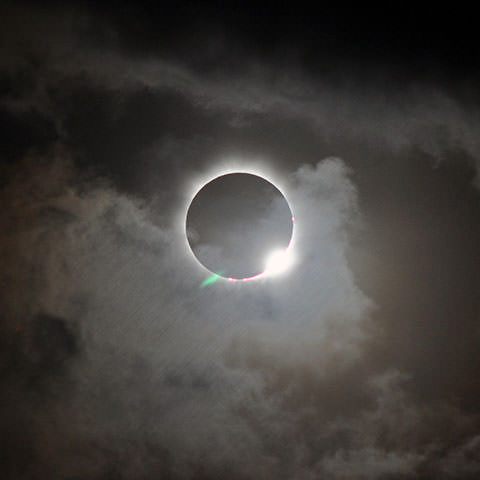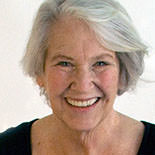 TOTAL ECLIPSE
TOTAL ECLIPSE
Annie Dillard
It had been like dying, that sliding down the mountain pass. It had been like the death of someone, irrational, that sliding down the mountain pass and into the region of dread. It was like slipping into fever, or falling down that hole in sleep from which you wake yourself whimpering. We had crossed the mountains that day, and now we were in a strange place—a hotel in central Washington, in a town near Yakima. The eclipse we had traveled here to see would occur early in the next morning.
I lay in bed. My husband, Gary, was reading beside me. I lay in bed and looked at the painting on the hotel room wall. It was a print of a detailed and lifelike painting of a smiling clown’s head, made out of vegetables. It was a painting of the sort which you do not intend to look at, and which, alas, you never forget. Some tasteless fate presses it upon you; it becomes part of the complex interior junk you carry with you wherever you go. Two years have passed since the total eclipse of which I write. During those years I have forgotten, I assume, a great many things I wanted to remember—but I have not forgotten that clown painting or its lunatic setting in the old hotel. The clown was bald. Actually, he wore a clown’s tight rubber wig, painted white; this stretched over the top of his skull, which was a cabbage. His hair was bunches of baby carrots. Inset in his white clown makeup, and in his cabbage skull, were his small and laughing human eyes. The clown’s glance was like the glance of Rembrandt in some of the self-portraits: lively, knowing, deep, and loving. The crinkled shadows around his eyes were string beans. His eyebrows were parsley. Each of his ears was a broad bean. His thin, joyful lips were red chili peppers; between his lips were wet rows of human teeth and a suggestion of a real tongue. The clown print was framed in gilt and glassed.
To put ourselves in the path of the total eclipse, that day we had driven five hours inland from the Washington coast, where we lived. When we tried to cross the Cascades range, an avalanche had blocked the pass.
——————————
Annie Dillard (bo rn April 30, 1945) is an American author, best known for her narrative prose in both fiction and non-fiction. She has published works of poetry, essays, prose, and literary criticism, as well as two novels and one memoir. Her 1974 work Pilgrim at Tinker Creek won the 1975 Pulitzer Prize for General Nonfiction.
rn April 30, 1945) is an American author, best known for her narrative prose in both fiction and non-fiction. She has published works of poetry, essays, prose, and literary criticism, as well as two novels and one memoir. Her 1974 work Pilgrim at Tinker Creek won the 1975 Pulitzer Prize for General Nonfiction.